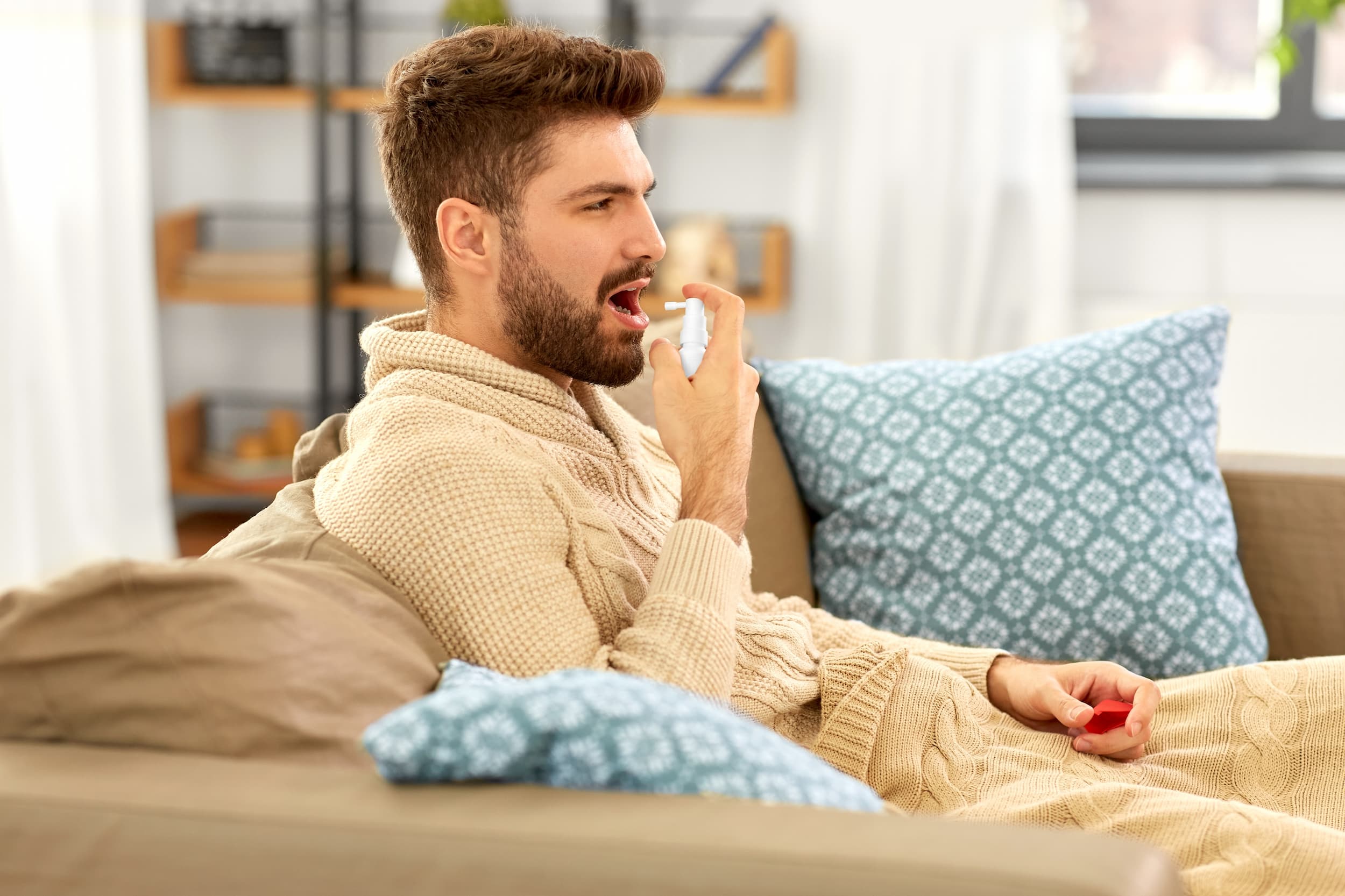Is benzocaine safe?

Is benzocaine safe?
The local anaesthetic known as benzocaine is a common ingredient in a number of sore throat treatments, including Ultra Chloraseptic’s menthol flavoured throat spray. In our throat sprays, benzocaine is used to temporarily numb the area affected by throat pain, providing short term relief from symptoms to help you concentrate on the things that matter. Other topical pain relief products, such as mouth gels, creams, or ointments, also contain benzocaine.[1]
Below, we explore how safe benzocaine is for the general public and whether children should use these products unsupervised.
How much benzocaine is dangerous?
As with any medicine, it’s important not to take too much benzocaine within a short period of time. In the case of throat sprays, taking too much could risk numbing larger areas than intended as well as the possibility of adverse effects.
Benzocaine has been linked to a condition called methaemoglobinaemia, which affects how oxygen is transported through the bloodstream. This condition can cause some or all of the following symptoms to appear within minutes to two hours after using benzocaine, as well as some other medications:[2]
- Pale, blue or grey-coloured lips, nail beds or skin
- Shortness of breath
- Confusion or lightheadedness
- Headache
- Fatigue
- A fast heart rate.
It’s possible to experience this even if you’ve used benzocaine products before, so if you experience any of these symptoms, you should seek medical advice and stop using your throat spray immediately. If a healthcare professional has diagnosed you with methaemoglobinaemia, you should avoid using benzocaine throat sprays entirely.[2]
However, following the instructions on the packaging when using throat sprays, reduces the risk of developing adverse side effects. This means taking the recommended dosages at the recommended intervals. For this reason, it’s vital to read all the instructions before you take a medication, so you know what you’re doing and what to expect. You can also use home remedies to help alleviate sore throat pain while you recover from your infection, or seek medical advice if your condition is lasting longer than expected.
Another important part of the instructions on benzocaine and other local anaesthetic products is the recommended age range. The Ultra Chloraseptic children’s blackcurrant flavoured throat spray contains benzocaine to numb the throat and shouldn’t be given to children under the age of six. An adult should supervise any child using the spray to ensure they take the correct dosage and don’t use it for more than three consecutive days.
Can you be allergic to benzocaine?
Some people can be allergic to benzocaine, but experts don’t believe this is common in the UK.[1,3] The majority of people can use benzocaine and other local anaesthetics in appropriate doses without an allergic reaction – although there may be some minor side effects such as tingling sensations as the anaesthetic wears off and pain from an injection if the anaesthetic was administered in that way.[1]
Although the allergy isn’t common, it’s still important to be aware of any adverse effects you experience when taking medications. If you experience allergy-like symptoms after taking benzocaine, it’s worth getting medical advice in case you are allergic to the local anaesthetic or another ingredient within the product you’re using in order to reduce the risk of further allergic reactions. Potential allergy symptoms include:[4]
- Shortness of breath
- Rashes or itchy skin
- Nausea or vomiting
- Swelling where the anaesthetic was applied
- Diarrhoea
- Sudden disorientation, fatigue or dizziness
- Loss of consciousness
- Anaphylaxis
- Pale or blue colour in the lips, skin, tongue or nail beds.
Most experts consider local anaesthetics like benzocaine safe for use at home. If you experience any undesirable side effects, you should speak to a doctor or pharmacist. They should explain what might be causing your symptoms and how to treat them.[1]
Resources:
[1] https://www.nhs.uk/conditions/local-anaesthesia/
[3] Sidhu, S K et al. “A 10-year retrospective study on benzocaine allergy in the United Kingdom.” American journal of contact dermatitis : official journal of the American Contact Dermatitis Society vol. 10,2 (1999): 57-61. doi:10.1016/s1046-199x(99)90000-3 Available at: https://pubmed.ncbi.nlm.nih.gov/10357712/

